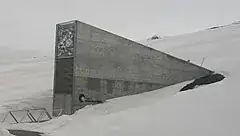Global plagues have dropped the population to 1 billion and global civilization has collapsed. In an effort to save future civilization some time, you want to provide some information to kick start civilization's regrowth.
You are choosing exactly three books on grain production
Assumptions
- We assume the initial reader of these books is highly educated and that they are fluent in one of the languages that these books are written in. Should the info prove reasonable/useful, it will be handed off to grain farmers.
- We also assume that the future reader is familiar with and has an interest in agriculture. Maybe, they grew up in a farming community.
- We also assume a technology level of approximately 1800. Whatever we had tech or knowledge-wise in 1800, they have.
- While we can be sure that these three books will be found together, we can't be sure that they will be found with any other sets of books.
By virtue of a print-on-demand press and a generous internet connection (and minimal scruples about copyright law), you can get your hands on the text and diagrams of most any book/article in existence.
The best book choices will:
- Give future generations stronger pointers for where to go looking for further knowledge.
- Save them some of the trial and error of fumbling around on their own, if possible.
- Will be books about general agricultural best practices, not how to grow a specific crop or how to grow crops in a specific climate.
Printing off all the agricultural articles on Wikipedia or any other article archive won't satisfy because...reasons. Only actual books will satisfy.
Preserving the books is a solved problem, so no need to worry about it. These won't be electronic copies because given our target tech level, electronic records will be just little black bricks.
Note to responders: Also, while it's true that three books is arbitrary, the number was chosen as it forces hard choices about which books are really worthy. There are two extremes at play: the utterly mundane, "give them normal undergraduate textbooks" and "compress an entire field down to three books". The first isn't noteworthy, while the second is impossible. Try to push your selection of books further towards the highly comprehensible master-works of the field. The specification of grain production is intentionally broad because someone in 1800 won't be aware of the diversification of sub fields that we see now. Further, this information will be distributed to farmers who already know their job. We just want to show them how they can improve their yields.
This question is a part of the Three Books series. It will grow to cover many and diverse topics.
